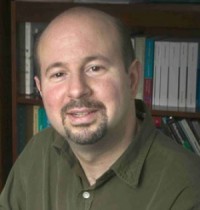By Roger Pielke, Jr., Prometheus
Over at Seed Magazine in a collection of views on “framing,” Penn State climatologist Michael Mann explains why it was necessary to misrepresent what the IPCC does on the cover of his co-authored book titled “Dire Predictions: Understanding Global Warming”:
Often, in our communication efforts, scientists are confronted with critical issues of language and framing. A case in point is a book I recently co-authored with Penn State colleague Lee Kump, called Dire Predictions: Understanding Global Warming. The purists among my colleagues would rightly point out that the potential future climate changes we describe, are, technically speaking, projections rather than predictions because the climate models are driven by hypothetical pathways of future fossil fuel burning (i.e. conceivable but not predicted futures). But Dire Projections doesn’t quite roll off the tongue. And it doesn’t convey; - in the common vernacular; - what the models indicate: Climate change could pose a very real threat to society and the environment. In this case, use of the more technically “correct” term is actually less likely to convey the key implications to a lay audience.

As one of those “purists” who would like to receive information that is technically “correct” I probably can read that book by its cover.
In contrast, in another commentary on framing at Seed, ASU science policy expert Clark Miller suggests an alternative, richer view of framing: Two competing models of framing exist. The first views framing as a tactical choice in communication. Spinning information to comport with culturally embedded narratives purportedly raises its credibility with target audiences. This model presumes an ignorant and uninformed public, with all the dangers that implies for democracy. I reject this model.
The second model views framing, instead, as how humans make sense of and give meaning to events in the world - the lens through which they interpret disparate observations, models, data, and evidence in light of their values. This model posits framing as an ineradicable element of reasoning, even in science, and a facility for rich, nuanced storytelling as a foundation for human community.
Both models recognize that humans structure their understanding of policy through narrative and story. Rather than exploiting this structure for political gain, however, the second model acknowledges that any specific policy frame is, at best, partial and incomplete. Any frame reflects only one way of looking at a policy problem, leaving out potentially critical pieces of knowledge and significance.
See post at Prometheus.




